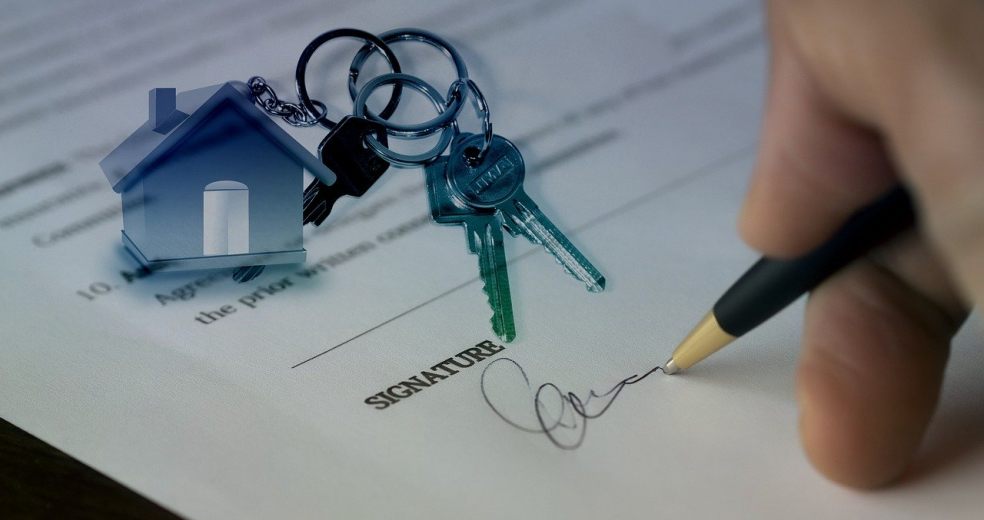
Why do do if your property chain breaks
The COVID pandemic has made the house buying a lot more difficult and with the Stamp Duty holiday ending on 31st March, pressure is building. Long property chains have always added strain to the process and are doing so now more than ever. In this guide, we’ve worked with property expert, Gary Hemming, Commercial Lending Director at ABC Finance Ltd. to break down what you should do if your property chain is collapsing.
Why do property chains break?
When you’re buying a property, it’s highly likely that the seller is also buying a new home, as is their seller. This can go on and on and the longer the chain, the more likely you are to run into trouble.
Common problems include failing to secure a mortgage, issues arising with the survey, gazumping and gazundering. During the pandemic, mortgage lenders are frequently changing their attitudes to borrowers who work in certain sectors. There are also issues with surveyors and conveyancers who are struggling with homeworking and childcare.
Common issues with the survey include the property valuing less than the agreed purchase price, or defects being found with the property which require expensive repairs. These can lead to disputes over the agreed purchase price and can lead to the buyer or seller pulling out of the sale.
How can I prevent my chain from breaking?
Although certain steps can be taken, you’re ultimately relying on other people who may be a few links away from you. It’s impossible to control all of the variables all of the time.
The main step is to try to reduce the length of the chain you’re in. When considering putting an offer in on a property, or accepting one on yours, ask the agents involved about the length of the chain. The longer the chain you’re creating, the greater the chances of issues arising.
In addition, be realistic about your purchase and sale. If you offer far more than the asking price of your new home, it is likely to value for less than you’re buying for and may result in a mortgage shortfall.
When accepting an offer above asking, ask what the buyer intends to do should the property value for less than the purchase price. This covers the issue upfront and can avoid the need to renegotiate the price later.
What are my options if my chain breaks?
When buying a property, you’re committed very quickly, both from a financial and emotional standpoint. As such, allowing a chain to collapse and then moving on to try again is often not an option that people are happy to accept.
With this in mind, there are a few options available to repair the chain where failures occur – assuming that there is only one issue and others are keen to proceed.
If your sale falls through, the first thing you should do is find out why. If it’s an issue of money, you may be able to repair things by offering a reduction in your sale price. For example, if your buyer has been knocked down £5,000 and is going to pull out, why not offer a reduction of £2,500 on your property to cover half of the costs? It may well save you more money than starting the process again and losing out on your onward purchase.
The next option is to look to secure a quick buyer for your home. The best way to manage this is to ask local agents if they have any investors on their books that would be happy to purchase a property quickly for a small discount. Experienced investors will be well known to agents so this could mean a quick turnaround even if you’re only offering a small discount.
A bridging loan can be used to raise finance before your property sells. Bridging loans are short-term loans designed to cover the gap between 2 events occurring, in this case, buying your new home before your current property sells. They can generally be arranged in a couple of weeks, so could quickly repair the chain before it collapses completely.
The rates charged are higher than those of mortgages, but can often be added to the loan, meaning you don’t have to find the money to pay each month. You should always seek advice when considering a bridging loan as there can be big differences in the costs of loans between each provider.
Finally, there are companies out there who will purchase your property extremely quickly, often in a matter of days. Although this seems like a simple way out, it’s also the most expensive of these options as the offer made is usually significantly below the property value.
Most companies state that they will pay ‘up to’ a certain value of your property and in almost all cases, the price paid is far below the maximum. An offer of 80% of the property value would generally be considered as the top end in this market and the market can be prone to last-minute reductions in offers.

















